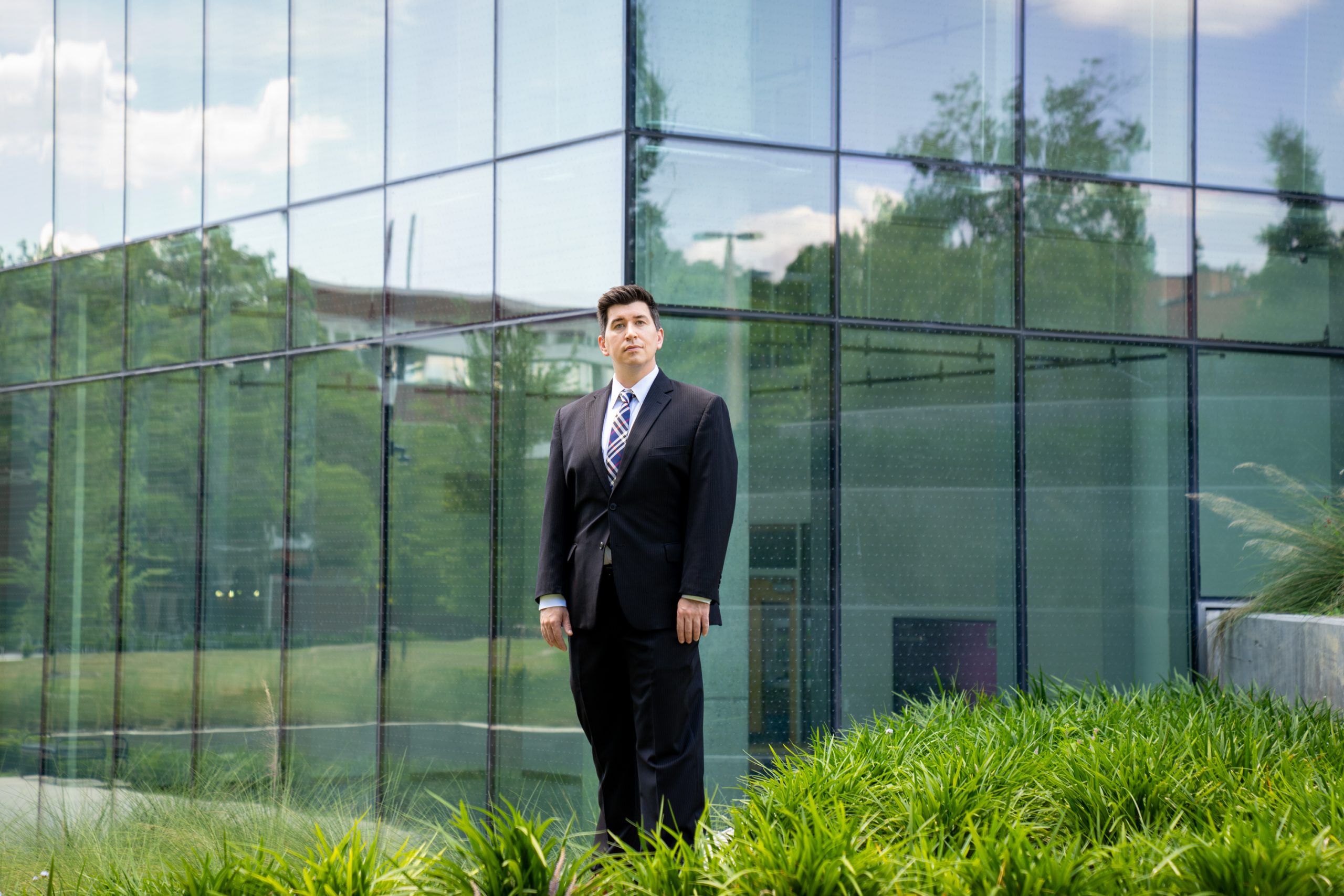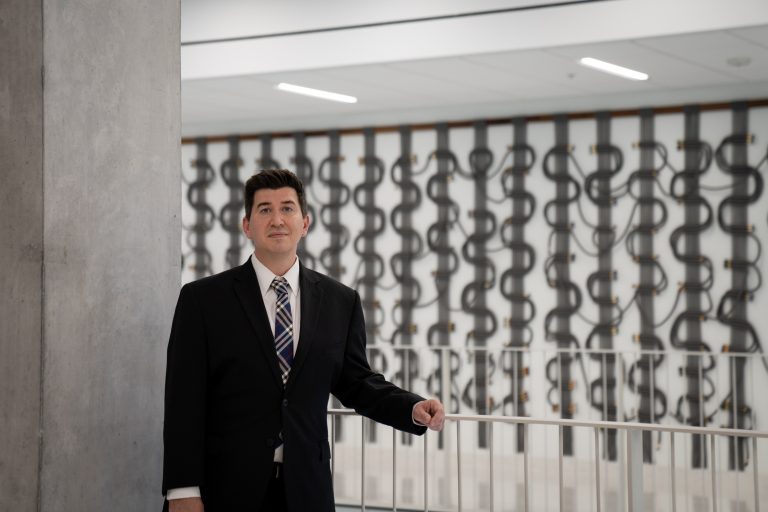
UF writing courses redefine the role of AI
While some in higher education fear pitfalls, one faculty member pioneers a new approach
Zea Miller isn’t troubled by student use of artificial intelligence (AI) in the classroom. Quite the opposite: He sees it as an opportunity to revolutionize the way writing is taught.
Rejecting the fear that AI might erode traditional writing methods, Miller integrates advanced AI tools into his teaching strategy. His experimental courses on professional writing and AI actively push the educational envelope by embedding AI at the core of the curriculum.
Miller’s classes empower students to extend their intellectual efforts with AI, enhancing both efficiency and creativity in their work. He regards AI as a resource for the writing process, not a threat.
“I’m preparing my students to compete across the AI landscape,” Miller said. “We must build AI literacy so our students can thrive in this new world.”
As an assistant instructional professor in the University Writing Program, Miller’s vision aligns closely with the University of Florida’s goal of becoming a leader in AI education. He developed his most recent course, “Professional Writing in AI,” over two years ago, predating ChatGPT’s arrival on the scene. Recognizing the University of Florida’s commitment to becoming a preeminent AI university, Miller designed this course to dynamically keep students ahead of the curve.
He crafted a sequence of assignments that simulate the various stages of a potential career path. When new AI tools are released, even mid-semester, Miller swiftly adjusts his curriculum to incorporate them. It’s a bold technique, one that has the potential to set a new standard for academic programs nationwide.

The course begins with students inventing an AI-powered platform or service and announcing their creation to the world. They then engage in customer service roles, responding to inquiries from fictional clients. As the course progresses, students craft pitch decks to attract investors, climbing each rung of the career ladder to ultimately lead a thriving company.
“No one is approaching AI from the various steps of a possible career,” Miller said. “By focusing on technique and adaptability, my students become unstoppable.”
Miller’s students are already reaping the benefits. Fourth-year psychology major Karen Laurent says the course has provided her with more than advanced writing skills. It served as a safe space for practicing her creativity, and a platform for familiarizing herself with advanced tools previously considered futuristic.
“This might be the most important class offered at UF,” she said. “It’s more than worth my while, it is the means to success in my future.”
According to Laurent, the course is especially impactful for STEM students who may lack opportunities for creative outlets within their rigorous schedules.
“In just a matter of weeks, we have taken on roles of inventors, company owners, programmers, team members, editors, consultants, and more, growing our repertoires of communication and technology-based skills,” Laurent said.
Michael Bielanski, a recent UF graduate, is poised to enter medical school with a distinct advantage, thanks to Miller’s transformative course. The Honors program graduate, who majored in microbiology and cell science with a minor in chemistry, intends to harness the proficiencies he gained to elevate his medical training and eventually, his practice as a physician. However, the course did more than bolster Bielanski’s scholarly toolkit; it fundamentally changed his perspective on AI.
“So many students are unfortunately just using AI to do their work for them, which completely defeats the purpose,” Bielanski said. “This course has shown me that AI is a tool that can be used in tandem with your own thoughts, and this combination really elevates your work to the next level.”
The positive reception from students deviates from the wider academic discourse about how AI is reshaping traditional education. By focusing on students and their learning outcomes, Miller hopes to move the conversation away from the tools.
“AI requires that we treat our students as rational agents in the conversation,” he said. “It’s showing them a new way of thinking – and exposing ways they’re not thinking.”
Looking ahead, Miller is excited to introduce new courses this fall, including “AI Policy, Policies and Policing” which will examine the ethics and equity of AI regulation. Another course, “Interstellar AI,” offered through the Honors Program’s (Un)Common Writes initiative, will challenge students to analyze the significance of messages sent into space, ultimately composing a message intended for interstellar transmission with the help of AI.
Beyond the classroom, Miller recently launched an open-access scholarly journal, the “Journal of Writing and Artificial Intelligence”, along with an accompanying international conference. This year’s event, to be hosted on UF’s campus in late October, will focus on teaching and AI.
Faculty across the country are discussing whether students should use AI tools, Miller explains, but there’s only so much that approach can do. Instead, the real work happens in practical application over theoretical debate, he says.
“Right now, AI is like a puzzle piece we are trying to make fit an already complete picture,” he said. “If we start outside the box, we can build in new ways. We owe our students that much.”
Miller hopes his courses will inspire fellow faculty members to collaboratively use AI alongside their students. He suggests that educators should use AI to strengthen learning itself in advance of the AI to come later in their majors and careers.
“We don’t need to define ourselves as a wall because there’s wind,” he said. “We can build a sail to harness it.”


